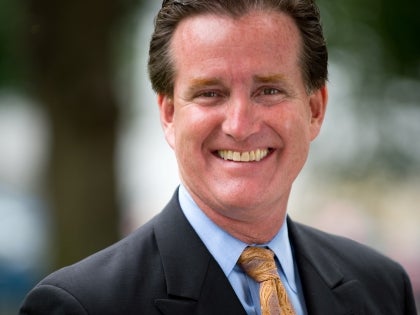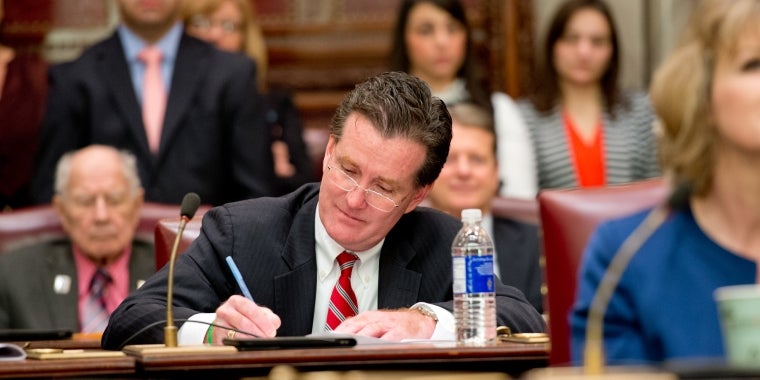
Times Beacon Record - Bill Would Expand Child Sex Abuse Protections
Legislation advanced by state Senate would criminalize acts against 11- and 12-year-olds
By Arlene Gross - February 29, 2012
Though New York State already had laws on the books to prosecute the most serious sex crimes committed against minors, the Senate recently passed legislation 58-2 to expand the definitions of aggravated sexual abuse of victims younger than 13 years old when the abuser is at least 18.
Sponsored by Sen. John Flanagan (R-East Northport), the bill passed in the Senate Jan. 30 and was delivered that day to the Assembly, where Assemblyman Peter Abbate (D-Brooklyn) is leading the charge.
The Senate bill (S3207-2011) establishes that persons 18 years or older may be charged with aggravated sexual abuse in the third through first degrees regarding certain acts committed against a child under 13 years. The penalties range from a two- to seven-year prison term to a five- to 25-year sentence.
"While sexual abuse against any resident of our state is unacceptable, it is vital we continue to strengthen our laws to protect our youngest and most vulnerable citizens," Flanagan stated. "Those under the age of 13 and their parents need to know that their state is working to make the common sense changes that are needed and this change is long overdue. I urge the Assembly to pass this law this year because that is what our communities deserve."
At least two local legislators are poised to vote in favor of the Assembly bill.
Assemblyman Andrew Raia (R-East Northport) said he will be a prime co-sponsor of the bill.
There are so many nuisances when you're dealing with criminal law as it pertains to children under 18, Raia said. For instance, the Assembly established two sets of standards: If a child is abused by someone over 18 who they knew, it was a lesser crime than in an instance when they didn't know the perpetrator.
"It took us a long time to get that fixed," Raia said.
For anyone convicted of sexually assaulting a child, Raia said, "there should be one punishment, and that is throw them in jail and throw away the key. And that standard should apply to both [types of] people. Hopefully we can get this passed."
If the bill comes to a vote, Assemblyman Michael Fitzpatrick (R-St. James) said he would support it.
"It seems to have difficulty for whatever reason, getting out of [Codes] Committee," Fitzpatrick said. "You would scratch your head and say, 'Gee, it makes sense. It certainly seems the right thing to do.' What would be the opposing argument to raise the age? I fail to understand why anyone would be opposed to increasing this age and providing increased protection to any child [under] 13 years of age ..., up from 11."
Wondering aloud if those who oppose the legislation think 13-year-olds are better placed to make decisions as opposed to 11-year-olds, Fitzpatrick said, "That would seem strange to me, especially in light of everything going on in the world. But there clearly is a difference in how those who believe in harsher penalties think versus those who obviously feel differently."
Jen Pratico, chief of staff for Assemblyman Jim Conte said the Republican from Huntington Station would be a sponsor of the bill. "He will be talking to the Codes Committee chairman to see if they could get it moved through the committee. He supports the legislation and is hopeful it will go through the Assembly at some point this year," Pratico said.
Laura Ahearn, executive director of Parents For Megan's Law, a victims' rights organization dedicated to the prevention and treatment of sexual abuse, said prior to Flanagan's legislation, the state Sexual Assault Reform Act of 2000 had overhauled many sex crime offenses. "The SARA increased the victim's age threshold from under 11 to under 13. That gave greater protection to 11- and 12-year-olds," Ahearn said.
But that applied only to the top-level sex offenses of rape and sodomy and left out aggravated offenses, she said. Flanagan's legislation would bring the age threshold for aggravated sexual assaults in line with top-level sex offenses.
Flanagan's spokesman Rob Caroppoli said the legislation was intended to conform to SARA to ensure that all 11- and 12-year-olds would be protected against sex abuse regardless of the level of offense. He could not say whether the Senate has any plans of drafting legislation to protect minors ages 13 through 16.
Ahearn added, "We're very happy. Senator Flanagan has really been a leader in protecting our most vulnerable, so we applaud him."
Please click here to visit the Times Beacon Herald's web site



